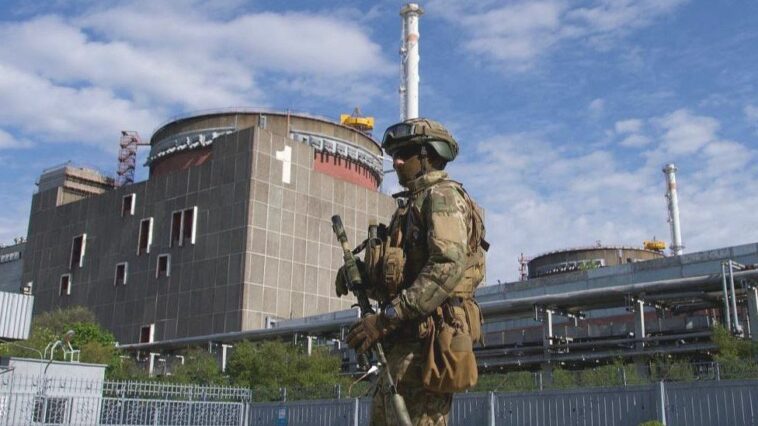After Russia’s full-scale invasion of Ukraine, the Kremlin has repeatedly sounded its nuclear threats, calling on the West not to “unleash World War III”. The “n-word” became another instrument of intimidation in Russia’s information war, and it proves its effectiveness even after almost five month of large-scale war.
The Russian regime keeps threatening to use nuclear weapons in the war against Ukraine, as well as threatening “third countries” (read: Ukrainian allies) with direct nuclear strikes.
Russian propaganda channel “Russia-1” on a regular basis promotes the message about “nuclear war with NATO”, that it “does not matter for Russia how many countries to destroy: whether 28 or 32”. This thesis is also reflected in Russia’s foreign policy discourse. Thus, deputy chairman of the Security Council Dmitry Medvedev reacted to the initiative of creating a tribunal for investigating Russia’s war crimes in Ukraine with another threat, calling the idea of punishing a country that has the largest nuclear potential “absurd in itself’ and “potentially threatening for the existence of mankind”.
Margarita Simonyan, the editor-in-chief of the Russian propagandistic channel RT, repeated the same threat, mentioning that “either we lose in Ukraine, or Third World War begins. Personally, I consider the path of the Third World War to be the most realistic, because knowing us, knowing our leader Vladimir Vladimirovich Putin, the most incredible thing is that, in the end, it will all end in a nuclear strike. It seems to me more likely than such a development of events [than Russian defeat in the war with Ukraine]”.
The idea of modern Russian diplomacy is largely built on ‘talking’ the Western leaders out of supplying heavy weapons to Ukraine – and nuclear blackmail remains one of the in its game, which is confirmed by a reaction of Olaf Scholz saying Germany is “doing everything to prevent the escalation leading to the Third World War”, “a nuclear war” which leads to delays of weapon supplies to Ukraine and Emmanuel Macron’s appeals for Ukraine to make concessions and “save Putin’s face”.
Russian Nuclear Terrorism in Ukraine
Having 15 nuclear reactors at 4 NPPs on its territory, Ukraine heavily relies on nuclear energy with 55% of electricity coming from nuclear sources. Therefore, targeting Ukraine’s critical infrastructure, Russia conducts nuclear terrorism, causing severe threats to environment and human health. This was proved by, for example, Russian troops occupying the territory of Chornobyl NPP for over a month, holding its employees captive, digging trenches in the exclusion zone, and burning radioactive forest nearby.
Ignoring the high risks of radioactive pollution, on March 4, Russian troops also shelled from heavy artillery Zaporizhzhya NPP, which is the largest in Europe (March 4) or Russian Kalibr missile flying low over the Pivdennoukrainska Nuclear Power Plant (NPP) in Mykolaiv region.
While the possibility and necessity of using strategic nuclear weapons with warheads which were made 40 or 50 years ago or even earlier, which needs routine maintenance, the use of tactical nuclear weapons is very likely and means the threat not only for Ukraine or even Europe but for the whole world. However, there is no need in using it since shelling of Ukrainian NPPs is enough to provoke a nuclear catastrophe. After such actions, the response of the world will be categorical and Russia will lose the rest of its support.
At the moment, Russian nuclear blackmail remains just a horror story – and so do Russian threats towards Finland and Sweden amid their preparations to join NATO, and Ukraine’s allies – Poland and the Baltic states – these threats remain just words. Russian official statements prove that the politics of compromising with the aggressor and placating it is not going to work since Russian claims do not have borders: it will not stop on the occupation of Ukraine but will keep demanding NATO to return to the 1991 borders to “provide the safety for Russia”. Traditional common Zapad military exercises conducted by Russia and Belarus show that the state has already simulated nuclear attacks against Poland (in 2009) and against NATO (2021) so even the total capitulation of Ukraine will not stop Russian imperial ambitions. In exchange for Ukraine’s nuclear disarmament, our state received the guarantee of sovereignty and security – and this time, Russian aggression cannot be left without a strong global response.


